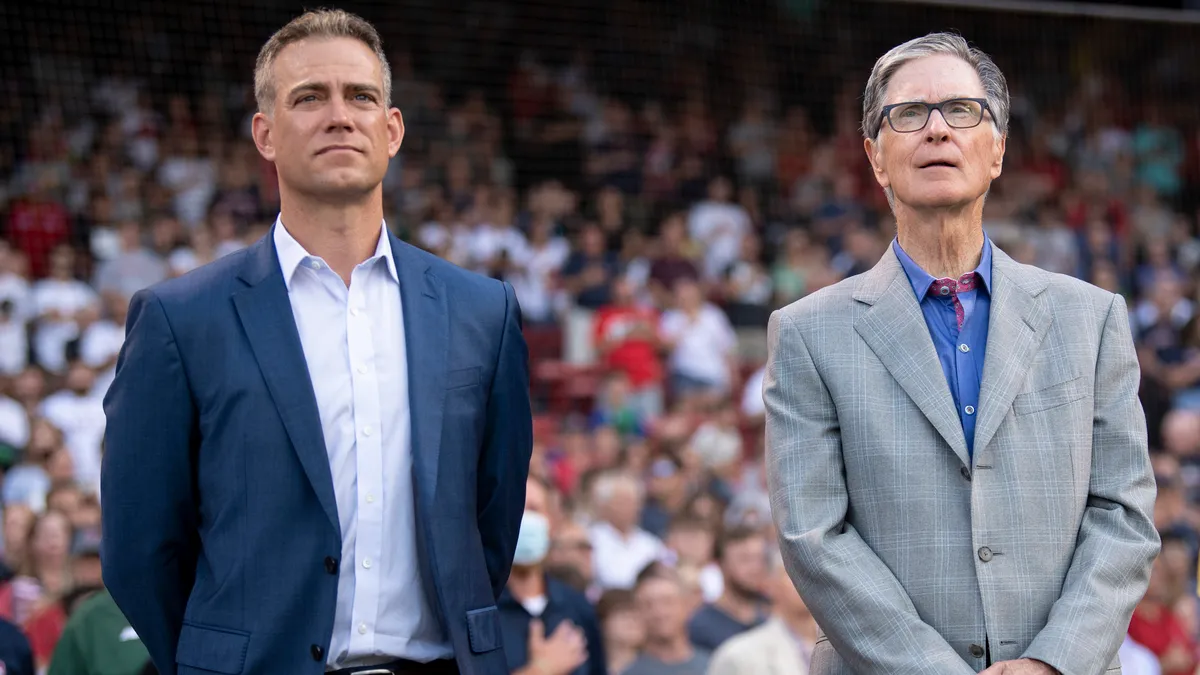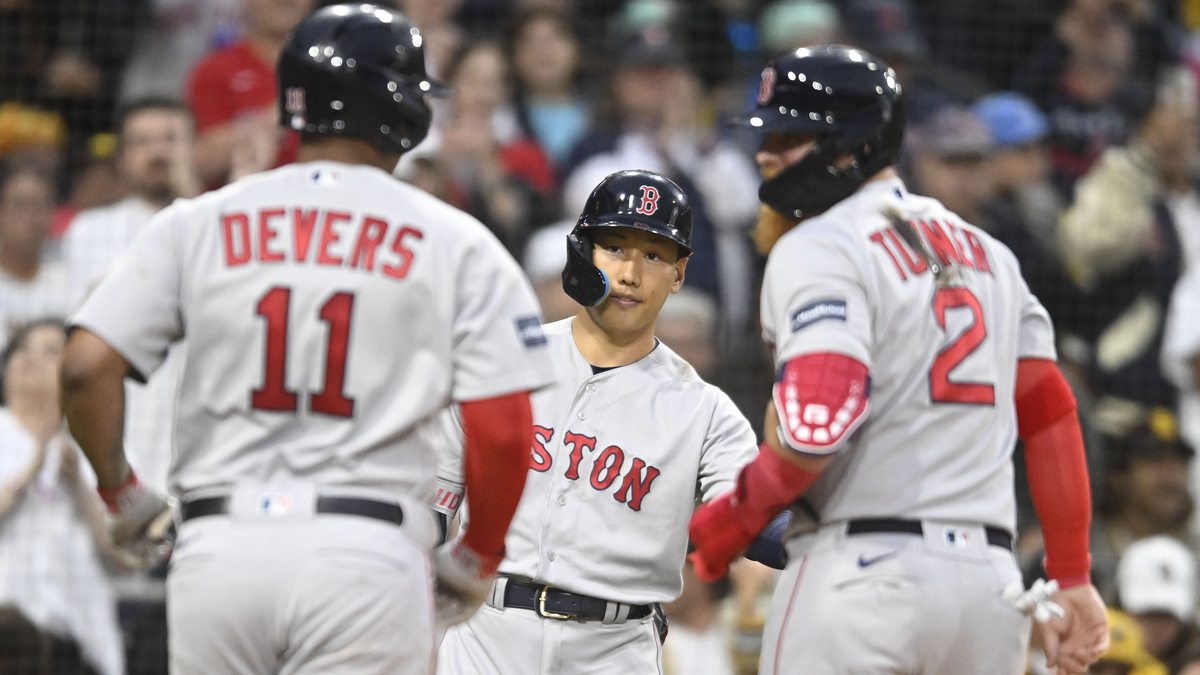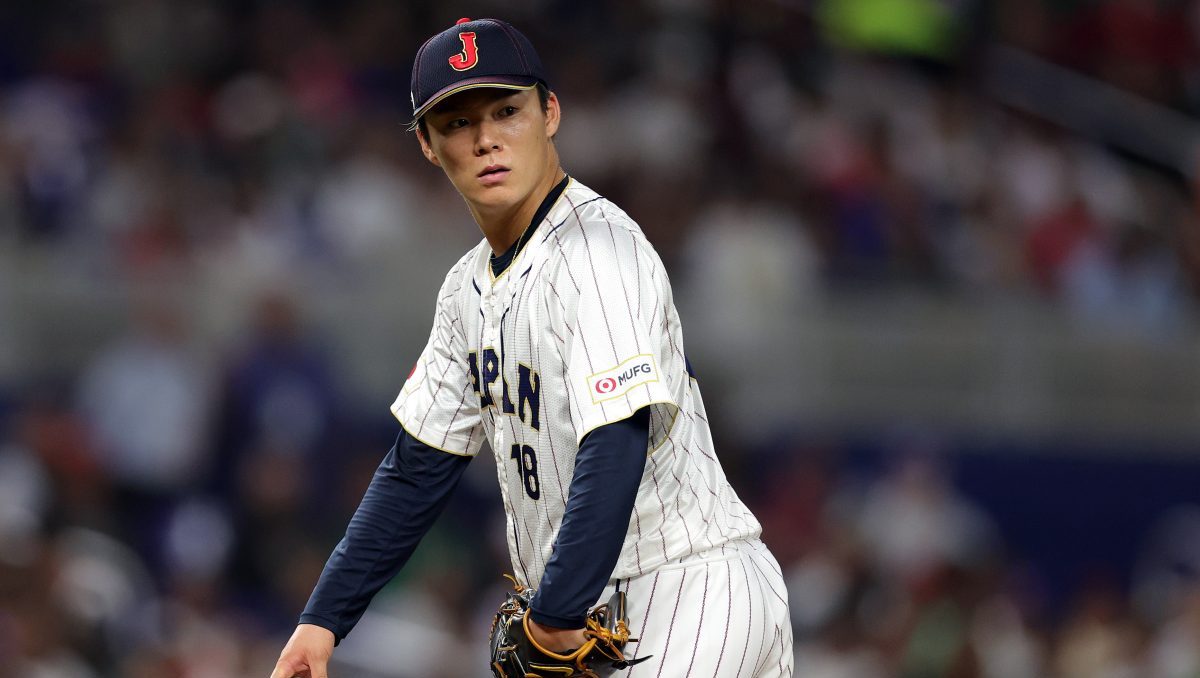Chaim Bloom's future will soon dominate the discussion of all things Red Sox, at least until owner John Henry makes a determination, one way or another.
Should the Red Sox finish last for the third time in four years, the calls for Bloom's ouster will only intensify. But for a path back to contention with baseball operations still under his watch, there's a striking parallel worth examining.
The Red Sox as we know them were born in 1994, with the arrival of Dan Duquette. The Dalton, Mass., native took over after a tremendous run with the small-market Expos, whom he had shrewdly built into a powerhouse following the departure of Dave Dombrowski.
Stay in the game with the latest updates on your beloved Boston sports teams! Sign up here for our All Access Daily newsletter.
MORE RED SOX COVERAGE
Only 35, Duquette promised to make the Red Sox younger and more athletic, with an emphasis on homegrown talent. Owner John Harrington praised Duquette's ability to build winners within the confines of Montreal's spartan budget.
Sound familiar? Bloom's arrival struck almost the exact same chords, with the key exception being that Duquette had already run an organization for three years, whereas Bloom was effectively an assistant GM in Tampa – a difference that now appears significant, given Bloom's struggles to close.
In any event, Duquette's first four years in Boston closely mirrored Bloom's tenure thus far.
Duquette's 1994 debut was shortened by the strike, just as Bloom's truncated 2020 took place during a pandemic. Each club finished under .500 before making surprising playoff appearances the following season.
The 1995 Red Sox came out of nowhere to win the American League East on the back of unheralded acquisitions like Tim Wakefield before bowing to the Indians in the Division Series. The 2021 Red Sox, meanwhile, turned Kiké Hernández, Hunter Renfroe, trade deadline pickup Kyle Schwarber, and others into a roster that reached Game 6 of the American League Championship Series.
The good times did not last in either case, however, and the Red Sox dropped to third in 1996 before finishing six games under .500 and 20 games out in Duquette's fourth season. Bloom's fourth campaign appears headed towards a similarly forgettable conclusion.
Had Harrington pulled the plug, the Red Sox might not have had the pieces to win it all in 2004. Just as today's Red Sox anxiously await the arrival of top prospect Marcelo Mayer, the 1997 Red Sox already knew they had a franchise shortstop in Rookie of the Year Nomar Garciaparra.
Garciaparra's presence alone didn't make the Red Sox a contender, but Duquette altered the equation that winter when he acquired Cy Young Award winner Pedro Martinez from his former team for young pitchers Carl Pavano and Tony Armas before immediately signing Martinez to a record $75 million extension.
The Red Sox reached the playoffs in 1998 and gave the Yankees all they could handle in the ALCS a year later. By the time Henry bought the Red Sox and replaced Duquette in 2002, the pieces of the 2004 champions were mostly in place courtesy of the former GM: Martinez, Manny Ramirez, Jason Varitek, Derek Lowe, Johnny Damon, Wakefield.
This is where the paths of Duquette and Bloom diverge, and the chief baseball officer would be wise to consult history as he plots the coming offseason, should he remain in charge. Had Duquette simply waited for youth, he would've never been around to see it flourish, especially since it turns out his drafts weren't very good. Acquiring Martinez made the Red Sox relevant, and signing Ramirez to a $160 million contract in 2001 made them a force.
As much as he loved prospects, Duquette ultimately wasn't afraid to deal them. You wonder if Bloom would be willing to part with a top-10 overall prospect like Pavano to receive the reigning Cy Young Award winner in his mid-20s – today's imperfect analogue to the incomparable Martinez being Miami's Sandy Alcantara, for instance.
Duquette's drafts didn't turn out tremendously – his best selections after Garciaparra were All-Star Kevin Youkilis and then probably infielder David Eckstein – but he added young talent with his signature fleecing of the Mariners for Varitek and Lowe, a move Bloom has not yet remotely duplicated. Once it became clear the Red Sox would be put up for sale, Duquette had orders to win immediately for the Yawkey legacy. That led to shorter-term thinking that altered his mission, factors that aren't currently in play for Bloom.
Still, if the Red Sox decide to stick by their embattled chief baseball officer, fans should recognize that a dip before a turnaround is entirely possible. Many of them, after all, lived it with the Duke.



